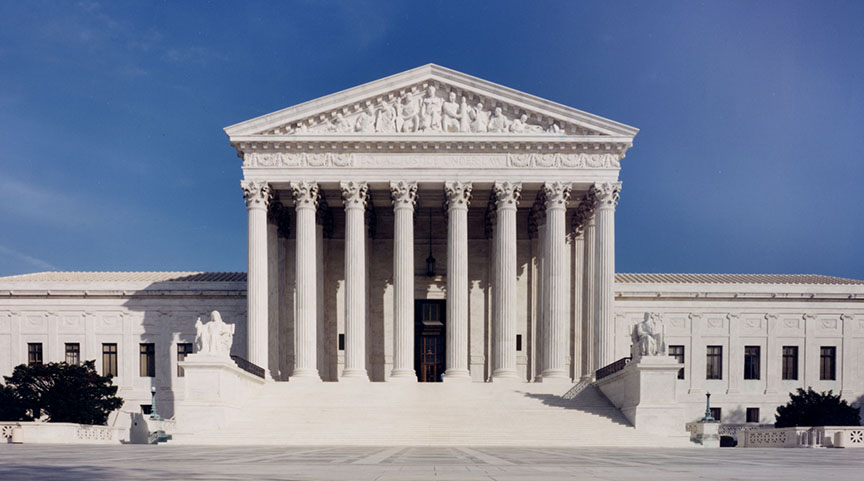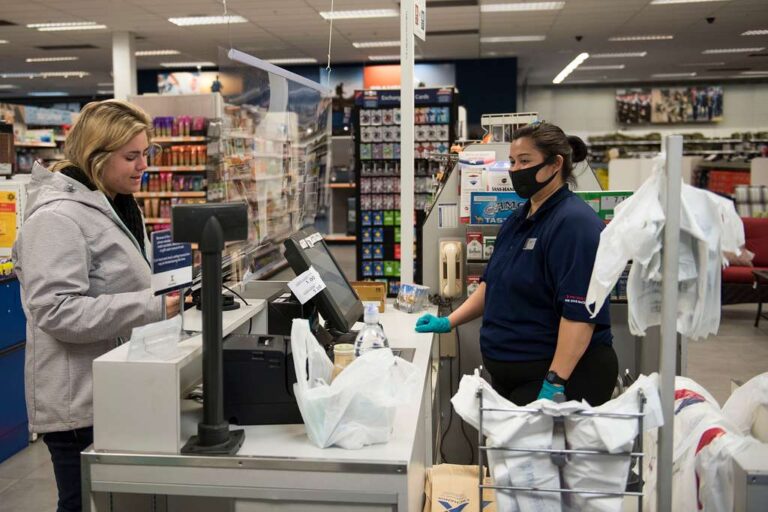
Michelle Berger is a student at Harvard Law School.
In today’s News and Commentary: The Supreme Court heard oral arguments on overturning Chevron and a recent NLRB complaint alleges widespread refusal to bargain in good faith by Starbucks.
The Justices heard oral arguments yesterday in Loper Bright Enteprises v. Raimondo. In Loper, the Court is considering whether to overturn Chevron‘s holding that courts should defer to reasonable agency interpretations of ambiguous statutes. Court observers, such as those at SCOTUSblog and the New York Times, tentatively predict that the Court will vote to overturn Chevron, though Chief Justice Roberts’ and Justice Barrett’s votes are not certain. The conservative Justices’ rationales for disliking Chevron vary (Justice Gorsuch, for example, seemed to distance himself from Justice Kavanaugh’s pro-business line of questioning by shifting focus to Chevron‘s impact on the civil liberties of individual litigants). The liberal Justices appeared united in the belief that Chevron deference is a bedrock judicial precedent that keeps decision-making in the hands of politically accountable experts, and out of the hands of judges. The Court consolidated Loper with another case, Relentless Inc. v. Department of Commerce, possibly because Justice Jackson recused herself from Loper. The consolidation gives the Court the added legitimacy of a decision by all nine Justices, should the court vote to overturn precedent. Jason discussed the potential labor law implications of a post-Chevron doctrine here.
The NLRB regional director in Florida filed a massive complaint last week against Starbucks. The complaint alleges that Starbucks has violated the NLRA by failing to bargain in good faith at the nearly 400 unionized Starbucks locations (Starbucks operates just shy of 9,000 stores in the United States, NPR reported in 2021). Starbucks baristas in Buffalo, NY, became the first in the company to unionize more than two years ago, in December of 2021. The organizing effort in Starbucks has been hailed as part of an energetic labor resurgence. Yet none of Starbucks’ unionized stores have a contract. On average, it takes 458 days for unions and employers to ratify a first contract — a number that has been rising for years as employers, perhaps embolden by the NLRB’s weak remedial powers, deploy union avoidance tactics even after their employees have exercised their right to chose a union. This is a stark reminder of how broken labor law is.






Daily News & Commentary
Start your day with our roundup of the latest labor developments. See all
November 7
A challenge to a federal PLA requirement; a delayed hearing on collective bargaining; and the IRS announces relief from "no tax on tips" reporting requirements.
November 6
Starbucks workers authorize a strike; Sixth Circuit rejects Thryv remedies; OPEIU tries to intervene to defend the NLRB.
November 5
Denver Labor helps workers recover over $2.3 million in unpaid wages; the Eighth Circuit denies a request for an en ban hearing on Minnesota’s ban on captive audience meetings; and many top labor unions break from AFGE’s support for a Republican-backed government funding bill.
November 4
Second Circuit declines to revive musician’s defamation claims against former student; Trump administration adds new eligibility requirements for employers under the Public Service Loan Forgiveness program; major labor unions break with the AFGE's stance on the government shutdown.
November 3
Fifth Circuit rejects Thryv remedies, Third Circuit considers applying Ames to NJ statute, and some circuits relax McDonnell Douglas framework.
November 2
In today’s news and commentary, states tackle “stay-or-pay” contracts, a new preliminary injunction bars additional shutdown layoffs, and two federal judges order the Trump administration to fund SNAP. Earlier this year, NLRB acting general counsel William Cowen rescinded a 2024 NLRB memo targeting “stay-or-pay” contracts. Former General Counsel Jennifer Abruzzo had declared that these kinds […]